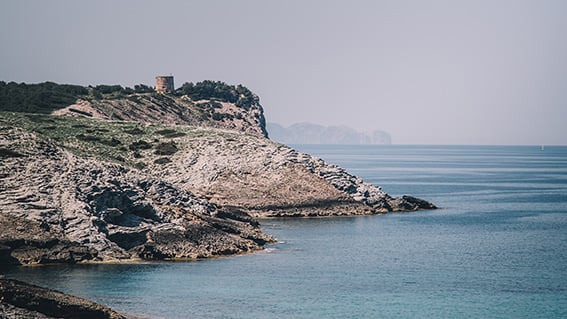FAQ
How long does a property in an attractive area typically remain on the market?
It can vary quite considerably. But on average a property will typically remain on the market for 3–6 months.
As a potential buyer, does it cost anything to hire an estate agent?
No. Hiring an estate agent is completely free of charge for the buyer. It is the seller of the property you are buying who must pay the estate agent’s fee.
Many estate agents show the same properties – why?
In Spain it is possible for several estate agents to sell the same property if the owner of the property has chosen to hire several different estate agent firms i.e. a non-exclusive assignment. This means that you may sometimes see the same property advertised online at different prices and with different pictures. Contact your local estate agent for more information about the property and the correct asking price before you submit an offer.
How much, as a percentage of the purchase price, should I expect to pay in extra costs?
In general you can expect to have extra costs amounting to around 10–12% of the purchase price when buying an existing property. However, the percentage can vary depending on the province in which you are buying the property. When buying a new-build home, you can expect to have extra costs of around 13.5% of the purchase price, as the tax on new-build homes is somewhat higher than the tax on existing homes. The same percentage applies throughout the whole of Spain when buying a new-build home. It is not possible to borrow money against extra costs such as taxes and legal fees.
Which Spanish coast has the cheapest properties?
Of the popular areas in Spain, it is Costa Blanca that is the cheapest, although there are other areas in Spain with even lower property prices. Please feel free to contact us so that we can help you find the right area and property for your needs and budget.
Is the seller obliged to clean the property by completion date?
The seller is not obliged to have the property cleaned by completion date. We can always help you get in touch with local cleaning companies after you get access to your new property.
What does it mean when a home is sold furnished?
If you have bought a property with furniture, there is an inventory list attached to the purchase contract. Furnished means that the seller and the buyer have agreed that the seller leaves some or all of the furniture in the home. An inventory list specifies which furniture is included. Housewares and for example carpets, TVs, curtains, lamps, paintings and decoration do not count as furniture. If you bought your home furnished, it also means that the seller can leave more things than what is on the inventory list. If you want to get rid of furniture after you move in, we can help you get in touch with local companies that can take care of this for you.

What are the main differences when buying a new-build home?
The payment plan is often different for a new-build home compared to an existing home. When buying a new-build home you receive bank guarantees on your payments pursuant to Spanish law. You also have a 10-year building guarantee on the structure of a new-build home. According to EU law there is always a 2-year guarantee on white goods (major appliances). And normally you will also receive a 1-2 year guarantee in relation to cosmetic defects. The local authority always performs an inspection before possession is taken, in order to give the developer “licencia de primera ocupación” (licence of first occupation). When a new-build home has been completed, a “snag list” is normally prepared with details of faults and defects that the developer must fix.
Does the same process apply when buying commercial premises/properties as opposed to a home?
In principle the process is the same, although the percentages may differ with regard to taxes and fees. Bjurfors can put you in touch with a knowledgeable accountant or legal advisor from whom you can obtain more information.
Is a bidding process common in Spain?
The type of bidding process we are used to in Sweden, with several potential buyers each making a bid, is not very common in Spain. In Spain your estate agent will assist in the negotiation of a final price between the seller and the buyer. For existing properties the final price usually ends up being somewhat lower than the original asking price. New-build homes usually have a fixed price.
If I want to make an offer that is below the original asking price, how many percent lower than the asking price do you think that my initial offer should be?
It can vary quite considerably. We recommend that you make an offer that is a couple of percent lower than the asking price, after which you can commence negotiations with the seller. Your estate agent can provide you with guidance regarding your initial offer, as the circumstances can vary greatly from property to property.
What is an NIE number?
An NIE number, or “Número de identidad de extranjero”,
is an identity number for foreign persons in Spain. You need an NIE number to open a Spanish bank account or in other such circumstances where some form of Spanish ID is required. If you don’t wish to submit your own application for an NIE number, we can put you in touch with someone who can help you with the application process. There are also many legal representatives who provide assistance with this matter during the process of buying a property.
What is a notary public?
A notary public is an officially appointed legal specialist with responsibility for checking the identity of the buyer and the seller. The notary provides information about any debts connected to the property and ensures that the payment is correct according to Spanish law and that it is received by the seller before the contract is signed. The notary also prepares the bill of sale, which forms the basis for the title deed application.

Can a company buy a residential property in Spain?
Yes, it is relatively common to buy a residential property in Spain via a company from your own country, or by starting a Spanish company. If you buy a residential property via a company, we recommend that you consult with an accountant, as significant benefit taxation may apply in certain circumstances.
Which are the best areas for renting out a property? In other words, which areas have the highest tenant occupancy rates?
A sound recommendation is to buy a property in an area with a generally high level of tourism. Good flight connections and proximity to an airport are also important aspects to consider. The staff at our offices can provide more information about this.
What are the rules for renting out a property, and do the same rules apply throughout the whole of Spain?
The rules are different in different areas. Unfortunately there are no general rules that apply to the whole of Spain. Usually you will be required to apply for a rental licence. The most regulated areas in Spain are located on Mallorca and in Barcelona.
The staff at our local offices can provide more information about the rules that apply in each region.
If I am thinking about renting out my Spanish property during parts of the year, what help is available to me?
We can help you by putting you in touch with a reputable property rental agency. They will then handle everything relating to the rental of your property for a fee. Their service covers aspects such as the rental process and occupancy planning, administration and cleaning. Before you rent out your property, you should always check the specific rules that apply in your area.
Is it possible to view a property digitally, or must I always attend a viewing on location?
If you are unable to attend a viewing on location, Bjurfors in Spain is able to arrange a digital viewing of all our properties via FaceTime or other such tools.
What are the main differences when buying a new-build home?
The payment plan is often different for a new-build home compared to an existing home. When buying a new-build home you receive bank guarantees on your payments pursuant to Spanish law. You also have a 10-year building guarantee on the structure of a new-build home. According to EU law there is always a 2-year guarantee on white goods (major appliances). And normally you will also receive a 1-2 year guarantee in relation to cosmetic defects. The local authority always performs an inspection before possession is taken, in order to give the developer “licencia de primera ocupación” (licence of first occupation). When a new-build home has been completed, a “snag list” is normally prepared with details of faults and defects that the developer must fix. Read our guide for details about the full process of buying a new-build home here.
